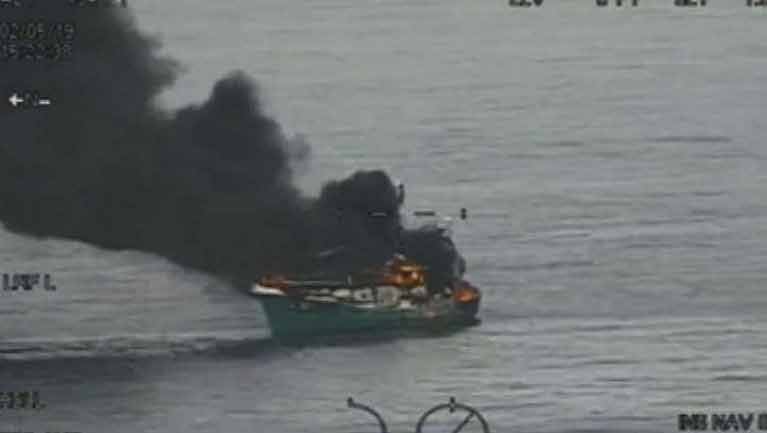Displaying items by tag: MFV Suzanne
In the wake of the Marine Casualty Investigation Board report involving fire onboard the fishing vessel “MFV Suzanne II”, the Department of Transport, Tourism and Sport has reminded vessel owners of their legal obligations when operating a vessel.
The reminder comes in the form of Marine Notice No. 18 of 2020, to all 'Fishing Vessel Owners/Operators, Skippers, Fishers, and Seafarers' and follows an Incident involving the Fire and Total Loss of a Fishing Vessel in 2019.
As Afloat reported in February, three fishing crew were saved by EPIRB after a fire alarm failed on the MFV Suzanne II in 2019.
Three crew on board the MFV Suzanne II had a fortunate escape, as their emergency position indicating radio beacon (EPIRB) activated, and gave their latitude and longitude.
The Marine Casualty Investigation Board (MCIB) inquiry records that the three crew had set out from Arklow, Co Wicklow, in the early hours of May 2nd last year, and were working about 30 nautical miles east of the fishing port.
Weather conditions were good, and the three had taken a break when one of the crew noticed smoke coming from the engine room.
The 17-metre French-built timber vessel with aluminium shelter deck was built as a trawler but fitted with a pot hauler in 2018. The vessel had been surveyed and certified for fishing in July 2018.
The Skipper of every Fishing Vessel has overall responsibility for ensuring his/her crew know the location of firefighting equipment on the vessel and are instructed, trained and drilled in the use of such equipment, the notice says.
Download Marine Notice No. 18 of 2020 below.






























































